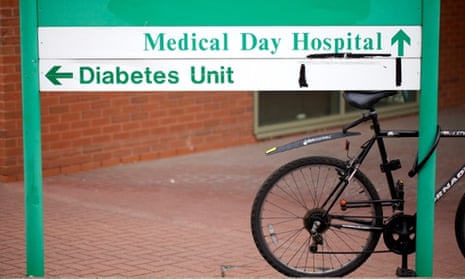When patients attend GP surgeries after just one day of ill-health or an ill-informed session with Dr Google, it’s easy to assume that the blame for the seemingly ceaseless demand for appointments lies with them. But for every patient who comes requesting energy-boosting pills, or even glasses and shoes, there are dozens whose decision to visit their GP is both appropriate and necessary. While undoubtedly there are many patients who seek help without trying self-care, there is a better explanation for the rise in demand for appointments – that people are getting sicker.
The number of GP appointments has risen significantly during the past few decades, from 217m consultations in 1995 to 340m in 2009. But should we simply assume that the extra caseload comes down to a combination of time wasters and an ageing population? Or is it possible that the increase in demand for the attention of a doctor may also come from a genuine increase in need across all age groups?
We like to think we live in an age of great health. After all, we live longer, we are rarely affected by the life-threatening infectious diseases that plagued society a century ago, and medical science is more effective than ever before. But, over the past 60 years, societies in the developed world have seen increases in a range of conditions that barely affected our grandparents and now make up a large proportion of visits to GPs.
For example, allergies, acne, depression, and digestive difficulties are some of the most common complaints GPs face, and while they may seem like an inevitable and unavoidable feature of life, they have become far more common than they used to be. Allergies affect over 40% of children and 30% of adults, having trebled in the last two decades of the 20th century. Asthma was estimated to affect 0.4% of children in the 1940s, but troubles 25% now. Acne was once rare, but now bothers 90% of people at some stage in their lives, and increasingly crops up on the faces of adults, particularly women in their 20s and 30s.
Irritable bowel syndrome, too, has become extremely common, making life difficult for 15-20% of people. Autoimmune diseases are also on the rise. Type 1 diabetes, for example, in which the pancreas stops producing insulin, was thought to affect as few as one in 25,000 people as the 20th century dawned, but at its close, the rate had reached one in 250.
Although a proportion of these extra cases can be put down to improved diagnosis, the experts agree that the astonishing rise in these conditions is a genuine one. Though some are life-threatening – such as severe asthma attacks and anaphylaxis from a nut allergy – for most the burden comes from their chronic nature. These illnesses are often lifelong, requiring repeat visits to the GP several times a year over many decades. And while a substantial increase in the average consultation rate per person is seen in those aged over 60, younger adults are also booking appointments far more often. On average, Women in their late 40s, for example, visited the GP 4.2 times in 1995, but six times in 2009 – a greater than average increase when compared to other age categories.
These modern disorders all have something in common. Over the past decade, evidence has been growing for an important role for the microbes that share our bodies in many of the chronic illnesses people in the developed world suffer today. The interaction between our immune systems and the 100tn bacteria living in our guts appears to be behind the dysfunctional immune responses of allergies and autoimmune diseases. For the others - depression and anxiety, digestive disorders, and especially obesity - inflammation induced by a damaged microbial community seems to play a significant part.
That the cause of this damage is down to factors within our control, including the overuse of antibiotics, a lack of fibre in the diet, and a shift towards caesarean sections and formula feeding, puts the onus to reduce the need for GP consultations on both patients and health services, as well as society as a whole. Perhaps, instead of blaming a minority of worried patients for over-burdening GPs, we should recognise that we suffer from a new epidemic of chronic ill-health, and begin seeking ways to minimise the causes of these modern conditions.
Alanna Collen has a PhD in evolutionary biology and is author of 10% Human: How Your Body’s Microbes Hold the Key to Health and Happiness
Join our network to read more pieces like this. And follow us on Twitter (@GdnHealthcare) to keep up with the latest healthcare news and views.





